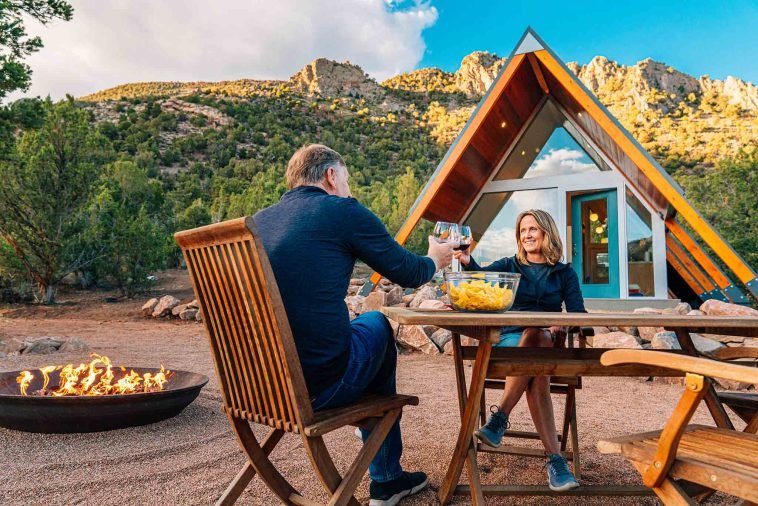Introduction.
Turning your house into an Airbnb can be a smart way to earn extra income and share your space with travelers from all over.
I’ve spent time researching and even testing out hosting myself, and I’d like to share a friendly guide on how to get started.
This guide covers everything from planning and preparing your home to managing bookings and keeping your guests happy.
Along the way, I include some useful tips, links to trusted resources, and answers to questions you might have.
Why Turn Your House Into an Airbnb?
Renting out your home on Airbnb can be a rewarding experience. Aside from the extra money you can make, hosting offers a chance to meet interesting people and learn about different cultures.
In many places, short-term rental properties have boosted local economies.
For example, according to Statista, Airbnb now has over six million listings around the world. This shows that more people are enjoying the freedom of choosing a unique space for their travels.
By turning your house into an Airbnb, you join a community that values authentic experiences and personal touches.
Hosting can also give you flexibility. You can decide when to rent out your space—maybe only on weekends or during a specific season.
This can be a great option if you’re not planning to move out completely. I found that a thoughtful approach to hosting allows you to maintain control over your space while earning income that can help cover your mortgage, bills, or even fund home improvements.
How Do I Turn My House Into an Airbnb?
Setting Clear Goals and Expectations
Before you list your house on Airbnb, it’s important to set clear goals. Ask yourself why you want to become a host. Is it to earn extra income, meet new people, or make use of extra space? Understanding your reasons will help you design a hosting plan that works for you.
For instance, if your main goal is to make some extra cash, you might choose to rent out only a room rather than your entire house.
On the other hand, if you love entertaining and enjoy meeting travelers, renting out the entire house might suit you better. I recommend writing down your goals and outlining what you expect from hosting.
This helps when making decisions on pricing, house rules, and how much time you want to invest in managing your listing.
Getting Your Home Ready for Guests
The next step is to prepare your home. Start with a thorough cleaning and organize your space to make it welcoming and safe. Here are a few friendly tips from my experience:
- Create a cozy space: Small touches like fresh flowers, soft towels, or a welcome note can make a big difference.
- Safety first: Check that all smoke detectors work, locks are secure, and any hazards are taken care of. It’s a good idea to have a fire extinguisher nearby.
- Add local flavor: Provide a few guides or brochures about local attractions, restaurants, and activities. This extra detail can help your guests feel at home and show that you care about their experience.
High-quality photos are essential when listing your space. I usually recommend taking pictures during daylight hours when your home looks its best.
If you’re not comfortable with photography, consider hiring a professional or asking a friend who enjoys taking photos.
Creating a Standout Listing
When it’s time to create your Airbnb listing, honesty and detail matter. Your listing should accurately describe your space, its amenities, and any house rules. Here are some key points to include:
- Clear photos: Upload several images that capture every room and detail. Guests rely on these visuals to decide if your space is right for them.
- Detailed description: Explain what makes your home unique. Mention the size of the space, available facilities, and any special features like a garden, a great view, or proximity to local attractions.
- House rules: Be upfront about your expectations. This might include policies on pets, smoking, or noise. Clear guidelines help prevent misunderstandings later on.
- Accurate pricing: Look at similar listings in your area to set a competitive rate. Adjust your prices based on seasons or local events to maximize your earnings.
It might feel a bit overwhelming at first, but taking your time to craft a detailed listing pays off. Guests appreciate transparency and clear information, and this can lead to better reviews and more bookings.
Handling Bookings and Interactions
Once your listing is live, managing bookings and guest communication becomes key. I find that prompt and friendly responses help build trust right from the start. Here are a few tips:
- Quick replies: Answer inquiries and booking requests as soon as you can. Even a short message saying you’ll follow up soon makes a good impression.
- Personal touches: Sending a welcome message before arrival can set the tone for a great experience. Let guests know how to reach you if they need anything during their stay.
- Guest reviews: Encourage your guests to leave honest reviews after their visit. Positive feedback can boost your listing’s visibility and attract more visitors. If any negative feedback arises, address it calmly and professionally.
Staying organized is important. I use a simple calendar system to track bookings and manage communication. This way, I never miss an inquiry or a check-out date. Consider using Airbnb’s built-in tools to keep everything on track.
Safety, Legal, and Financial Considerations
Hosting is exciting, but it also comes with responsibilities. Before you start, check your local rules on short-term rentals. Some cities have specific regulations or permit requirements.
It’s a good idea to visit your local government website or speak with a professional to ensure you’re following all rules.
Insurance is another important factor. Standard homeowner’s insurance might not cover short-term rentals, so I suggest looking into additional coverage options. Airbnb also offers some protection for hosts, but it never hurts to have extra peace of mind.
Taxes can be tricky when you earn extra income from hosting. Keep records of your earnings and expenses, and consider speaking with a tax professional to understand how to report your Airbnb income correctly. Taking these steps early on can save you from potential headaches later.
FAQs
Here are a few common questions I often hear about turning your house into an Airbnb:
How do I get started as an Airbnb host?
Begin by deciding which parts of your home you want to rent out. Prepare your space, create a detailed listing with clear photos, and set up your booking calendar.
Signing up on Airbnb’s website is straightforward, and their host help center offers step-by-step guidance.
Do I need any special permits or licenses?
This depends on where you live. Some cities require permits or have restrictions on short-term rentals.
I suggest checking with your local government or a legal advisor to make sure you meet all requirements.
What should I do to keep my guests safe?
Ensure your home is clean and hazard-free. Install working smoke detectors, provide clear instructions for emergencies, and make sure your house rules are easy to understand. A friendly welcome note with local emergency contacts can also go a long way.
How much can I earn from hosting?
Earnings vary greatly depending on your location, the quality of your space, and the time of year. Some hosts earn enough extra income to cover most of their mortgage, while others make a modest supplement. Research similar listings in your area for a good idea of pricing.
Further Resources
If you’re looking for more details, here are some additional resources:
- Airbnb Help Center: This offers a range of topics from setting up your listing to handling guest issues. You can visit it here.
- Local Government Websites: They provide up-to-date information on permits and regulations for short-term rentals in your area.
- Tax Guidance for Hosts: Websites like TurboTax or H&R Block often have helpful articles on how to handle rental income taxes.
Conclusion
Turning your house into an Airbnb can be a rewarding journey that opens up new financial opportunities and connects you with people from around the world.
It takes a bit of planning and organization, but the process is manageable if you take it step by step.
I hope this guide has given you a clear picture of what it takes to get started and helped build your confidence in leaping.
Every host’s experience is different, and you can shape your hosting style to match your lifestyle and goals.
I’m curious—what will be your first step in turning your house into an Airbnb?





GIPHY App Key not set. Please check settings